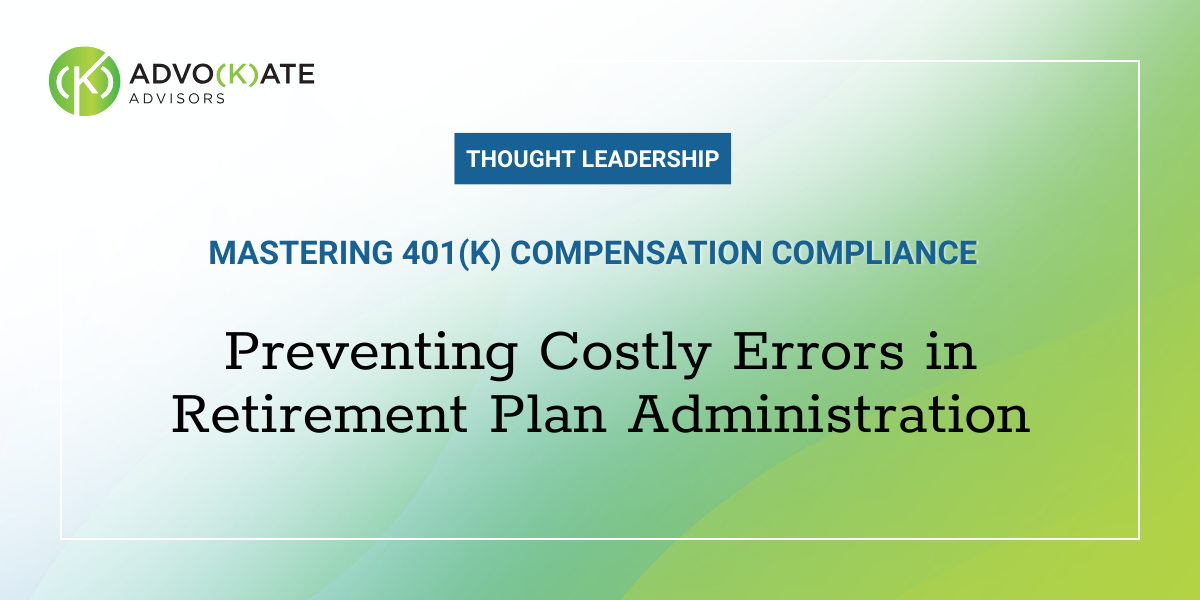
Properly defining compensation is a critical but often overlooked aspect of retirement plan management. In our latest 401(k)ompass episode, Lindsay Luketic discusses why compensation errors are one of the most common issues plan administrators face and how to address them effectively.
Understanding the Plan’s Definition of Compensation
Every retirement plan document defines compensation and specifies which payroll sources, such as bonuses, should be included or excluded. If not caught early, misalignments between the plan document and payroll practices can lead to costly and time-consuming errors.
Common Pitfalls and the Importance of Compliance
One of the most frequent mistakes involves handling bonuses. Administrators often fail to verify whether bonuses are included or excluded according to the plan’ document. Ensuring payroll systems are set up correctly to align with these requirements is crucial to avoiding compliance issues.
Fixing Mistakes Before They Escalate
Errors in compensation calculations are fixable, but addressing them quickly is essential. The sooner they are identified and corrected, the lower the financial and administrative impact on employers and participants.
Working with a Knowledgeable Team
Having the right team to guide you through these challenges can make all the difference. They can help you identify potential issues, ensure payroll practices match your plan document and take corrective action when needed.
Watch the full 401(k)ompass episode here to learn more about managing compensation correctly and avoiding common pitfalls.

